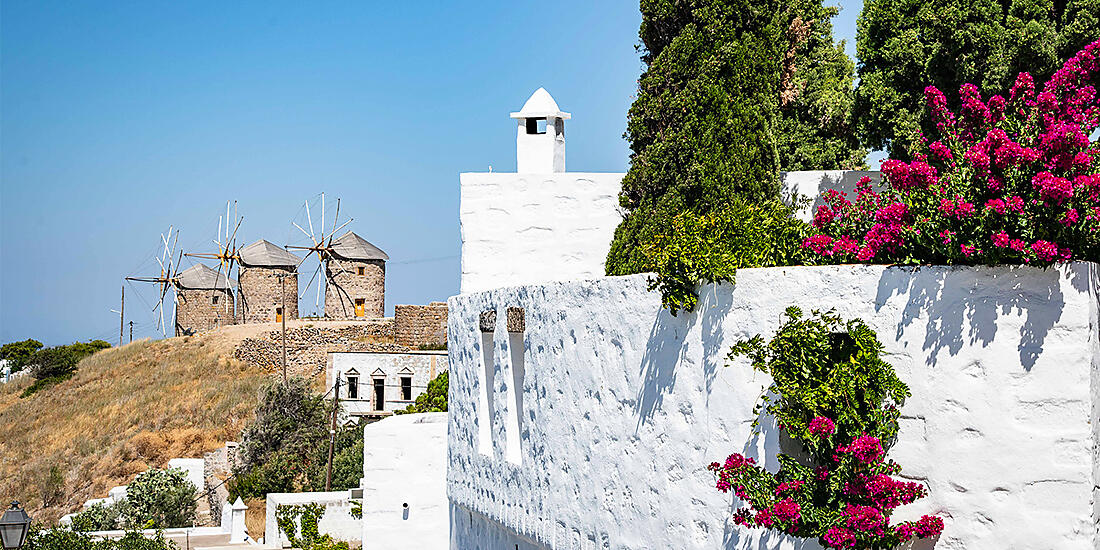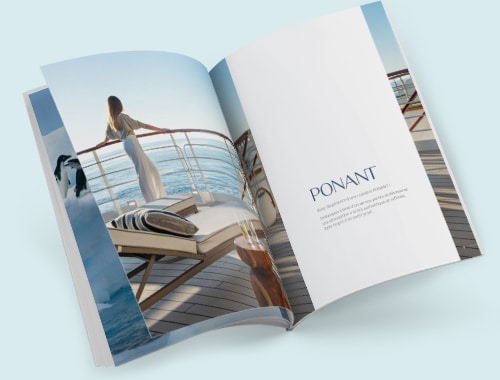reasons to set sail in the Mediterranean
Imbued with the history and culture of the surrounding countries, the Mediterranean is home to many incredible sites and a unique way of life. A cruise in the Mediterranean is the perfect opportunity to immerse yourself in this remarkably diverse region.
Find out more
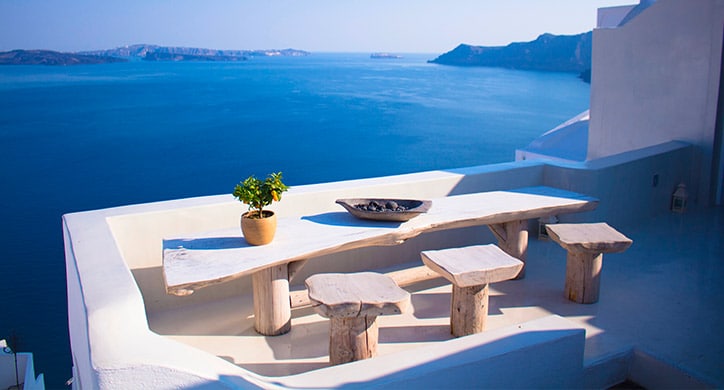
Mediterranean must-sees
Reducing the Mediterranean to a shortlist is no easy feat, but we have put together a selection of must-sees for travellers who are looking for the perfect balance between culture and relaxation.
Find out more
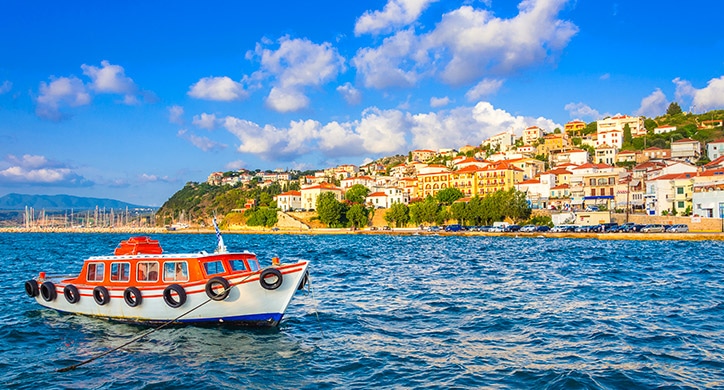
Explore the Mediterranean
3 reasons to set sail in the Mediterranean
Imbued with the history and culture of the surrounding countries, the Mediterranean is home to many incredible sites and a unique way of life. A cruise in the Mediterranean is the perfect opportunity to immerse yourself in this remarkably diverse region.
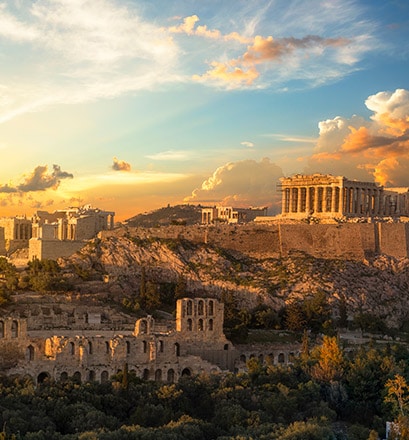
To appreciate the history and the UNESCO sites
From the Greeks to the Romans and Ottomans, men have been vying to rule the Mediterranean Basin and control its shipping routes since ancient times. Today, the numerous UNESCO World Heritage Sites are a testament to the region's economic and cultural wealth and to the diversity of the Mediterranean people. Setting sail on a Mediterranean cruise is a chance to admire a myriad of perfectly preserved artefacts and unmissable sites: the Acropolis of Athens; the Theatre of Epidaurus; the sacred island of Delos; the ancient city of Nessebar; the archaeological ruins of Delphi; the medieval city of Rhodes; the historic centres of Valletta Dubrovnik, Kotor and Syracuse; and the relics of Pompeii, Rome and Venice.

To enjoy the laidback lifestyle
White limestone rocks, soft green pines clinging to the cliffs, cloudless blue skies... The landscapes of the Mediterranean are as distinctive as they are beautiful. From the fields of olive trees and lavender to the crystal clear waters and the streets lined with orange trees, exploring this region is an adventure for all five senses. Not to mention the gourmet markets, overflowing with fragrant flowers, delicious fruit and vegetables, and sweet honey. These local gathering places are the perfect chance to wander from stall to stall, taking in the colours and accents all around you. Travellers who want to embrace the Mediterranean lifestyle need to slow down and appreciate la dolce vita: the diverse flavours, the people who talk with their hands, and the warm sun that caresses your skin.
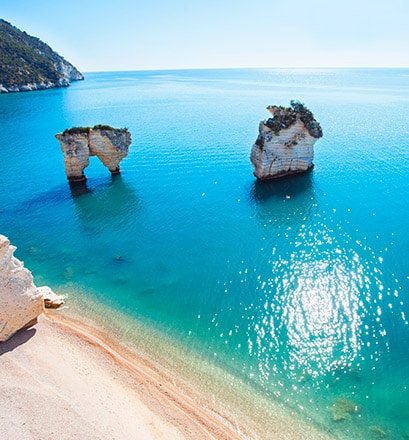
To stand at the crossroads of civilisation
From the Iberian Peninsula to the Turkish Riviera, the Mediterranean is where Europe meets Africa and Asia. Throughout history, the sea has allowed men to travel from shore to shore and from east to west, discovering new curiosities and trading knowledge and goods.
The Mediterranean boasts a unique blend of cultures: small ports with Byzantine architecture, ancient Ottoman cities, Greek and Roman ruins, Hispano-Moresque palaces... From the Black Sea to the Adriatic and from the Aegean Sea to the Strait of Gibraltar, every community has its own distinctive style and way of life.
Mediterranean must-sees
Reducing the Mediterranean to a shortlist is no easy feat, but we have put together a selection of must-sees for travellers who are looking for the perfect balance between culture and relaxation.
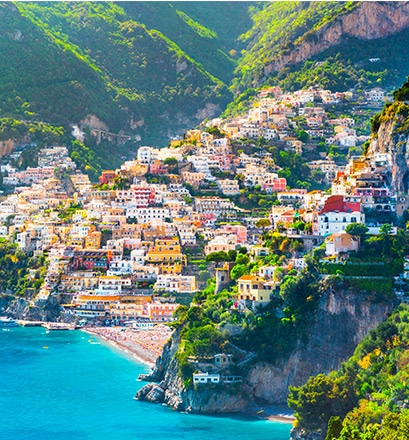
The Amalfi Coast
A UNESCO World Heritage Site since 1997, the Amalfi Coast is the jewel in Italy's crown. Its verdant cliffs, fragrant citrus terraces, and the picturesque hillside villages of Amalfi, Ravello and Positano have made it famous all over the world. Legend has it that the gods of Olympus, who wanted to listen to the song of the Sirens, used to walk the path that overlooks the coast. From high on the cliffs, they could see the entire Gulf of Salerno, all the way out to the island of Capri and the tiny Sirenuse Archipelago from which the bewitching voices came.
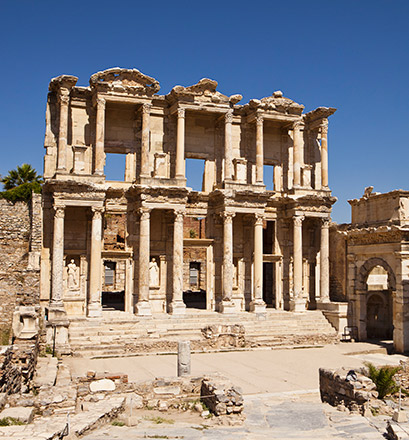
Ancient Greece
Outstanding navigators, intrepid explorers and talented builders, the ancient Greeks were constructing incredible monuments throughout Mediterranean as early as the 5th century BC. The Acropolis of Athens may be the most famous example, but the majestic Theatre of Epidaurus is the jewel of the Peloponnese, showcasing the architects' understanding of acoustics and harmony. The second-largest ancient theatre is found several thousand kilometres away in Ephesus, Turkey, an ancient port city dedicated to the goddess Artemis. This vast venue could hold over 24,000 spectators.
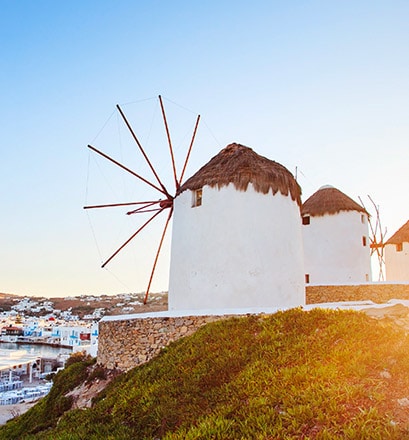
Idyllic Greece
What do you picture when you hear the word "Greece"? Whitewashed houses, immaculate hillside villages with royal blue accents, fishing hamlets frozen in time... These Greek dreams can become a reality: admire a sunset over the sea from Santorini, enjoy the clear waters and beaches of Mykonos, or lose yourself in the pedestrianised lanes of the small island of Hydra. The Greek Islands are the perfect place to get away from it all and enjoy a moment of pure serenity.
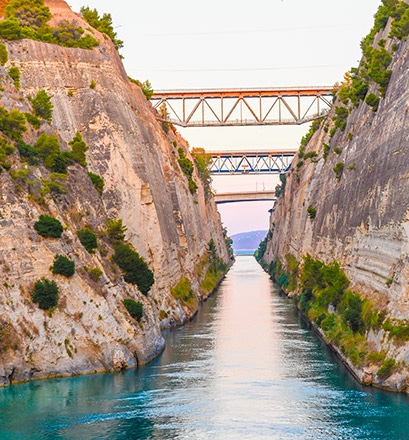
The Corinth Canal
The Corinth Canal cuts through the isthmus that shares its name, separating the Peloponnese from the Greek mainland. Inaugurated in 1893, it is just over six kilometres long, allowing commercial and tourist vessels with a draught of less than eight metres to avoid a 400-kilometre detour around the peninsula. The canal is enclosed by walls on each side, reaching a maximum height of around 50 metres. Watching the ship sail through this narrow waterway from the outer decks is a truly unique and unmissable sight.
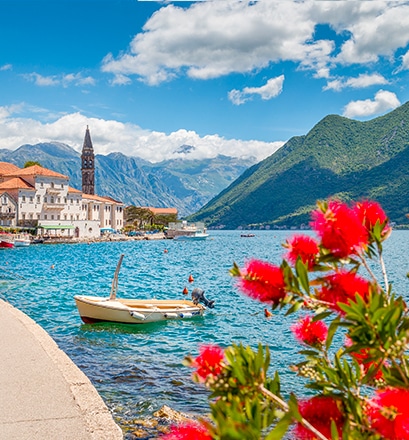
The Dalmatian coast
Embrace the laid-back lifestyle in the small seaside town of Hvar, walk the ramparts of Dubrovnik, the "Pearl of the Adriatic", or wander the walled city of Split. From historic centres to crystal-clear waters, the Dalmatian coast truly has it all. Take Montenegro, for example, where wooded hills and authentic villages overlook the Bay of Kotor, the perfect spot for secluded swimming.
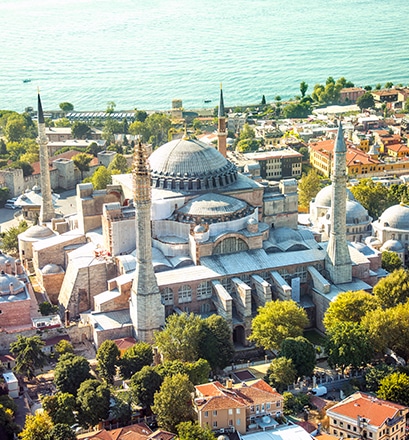
Istanbul
Succumb to the enchanting charms of Istanbul, previously known as Byzantium and Constantinople. Drawing on a multitude of influences, this magical city offers the best of the Greek, Roman and Ottoman worlds. The Topkapi Palace, the Blue Mosque and the Hagia Sophia are just some of Istanbul's magnificent monuments, not to mention the innumerable stalls of the Grand Bazaar. A stop in Istanbul is also an excellent chance to admire the carved wooden palaces along the Bosphorus.
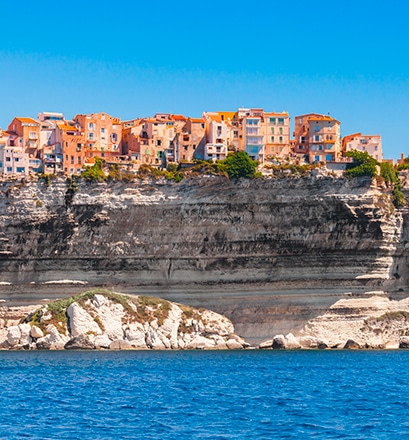
Bonifacio
Perched on the cliffs at the southern tip of Corsica, Bonifacio is a classic Mediterranean citadel. Bonifacio has always enjoyed a privileged position in terms of trading with the rest of the Mediterranean. Due to its strategic location between Italy and France, the city has been claimed by many different powers over the years, including the Republics of Pisa and Genoa. Today, the southernmost city of metropolitan France stands proud above its idyllic surroundings. Secret coves, a charming harbour and a range of nature walks make it an essential stop in the Mediterranean.

The Alhambra
If your cruise is stopping in Malaga, you might want to consider heading inland. Some 120 km away, the beautiful city of Granada is home to the equally breathtaking Alhambra palace. Built in 1238 by Mohammed ben Nazar, it is a testament to the Muslim presence in Spain from the 8th to the 15th century. Take your chance to explore every room of this incredible structure, from the Nasrid Palaces to the famous Court of the Lions. Its incredible stucco decorations, arabesques and columns will have you at a loss for words. The Partal Gardens with the Tower of the Ladies and its basin are particularly exquisite. Victor Hugo himself was inspired by this magical place: "The Alhambra! The Alhambra! Palace that geniuses have golden as a dream and filled with harmonies" (Les Orientales, 1828).










